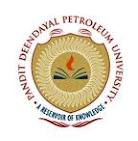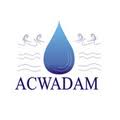Surface Water
Workshop on hydrological data management in Gujarat, Pandit Deendayal Petroleum University, April 18,2012, Gandhinagar
Posted on 18 Apr, 2012 06:36 PMOrganiser: Pandit Deendayal Petroleum University
Venue: Department of civil engineering
Pandit Deendayal Petroleum University,
Gandhinagar,
Gujarat

Water supply and demand management of the Indus basin : Options for current and future sustainable water resources management
Posted on 17 Apr, 2012 12:04 PMArticle Courtesy : Hydrology and Earth System Sciences (HESS)
Authors : A.N. Laghari, D.Vanham, and W.Rauch
Training and facilitation in hydrogeology, groundwater and watershed management , organised by ACWADAM, May 28 – June 12, 2012, Pune
Posted on 15 Apr, 2012 11:31 PM
Organizers: Ford Foundation, Arghyam and Advanced Center for Water Resources Development and Management (ACWADAM)
Venue: To be decided
ACWADAM is a not-for-profit organization that aims to develop solutions to groundwater problems of today and tomorrow. It is a premier education and research institution and facilitates work on groundwater management through action research programmes and trainings.
Toolkit for integrated urban water management, developed by Institute for Resource Analysis and Policy
Posted on 12 Apr, 2012 11:24 PMThe review included, but was not limited to urban hydrology, management of water supply infrastructure, water resources management, water quality management (WQM), groundwater management, technical and economic instruments for water demand management, technical and economic aspects of leakage reduction, environmental and economic aspects of wastewater treatment and reuse, storm water management
A student uses India Water Portal on Twitter (@indiawater) for research
Posted on 12 Apr, 2012 04:10 PMShe found Twitter to be a useful place to conduct her research on issues of governance and institutions in watershed management programs in India and the U.S., because it enabled her to pick the resources she found useful without having to go through lots of articles and research papers.
Central Water Commission and ISRO launch Water Resources Information System (WRIS), a comprehensive solution for accessing data on water in India
Posted on 11 Apr, 2012 02:36 PMDear India Water Portal readers,
PPP models for irrigation projects – Why and why not?
Posted on 10 Apr, 2012 11:17 AMAuthor : Rasika Gokhale Athawale
Climate change and water sources: Strengthening community preparedness and water use regulations hold the key
Posted on 10 Apr, 2012 10:34 AMAuthor : Neelima Garg
Scientific and technological approaches for sustainable use of water resources: Summary of the Global Indian Scientists and Technocrats Forum convention held at Pune, in December 2010
Posted on 09 Apr, 2012 11:17 PMThe sessions were as follows:





